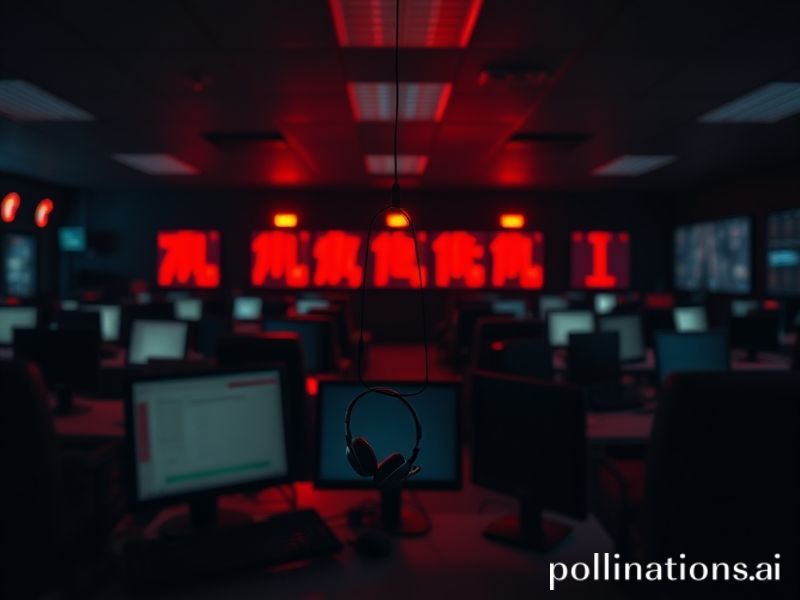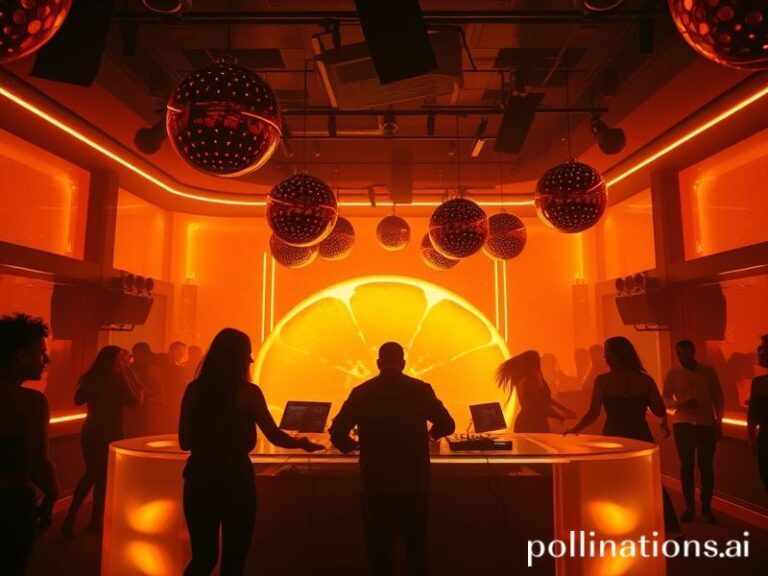When 911 Goes Silent: The Global Lesson in Three-Digit Dependence
When the World’s Most Trusted Three Digits Go Silent
A 911 outage is a very American crisis—like deep-fried butter or presidential Twitter feeds—yet last week’s six-hour nap of the United States’ emergency number sent shivers from Lagos to Lahore. Why should foreigners care if Omaha can’t summon an ambulance? Because the glitch laid bare a planetary truth: we’ve off-shored survival itself to a string of fiber-optic prayers. When those prayers hiccup, the floor drops out for everyone holding a SIM card, which is roughly 5.3 billion of us.
The official narrative is comfort-food bland: a “coding error” during system maintenance, quickly patched, nothing to see here. But the timing—hours before a North-American heat dome cooked sidewalks to 50 °C—was exquisite. Imagine the cosmic script supervisor: “Let’s schedule mass fainting and network failure for the same afternoon; ratings gold.” AT&T, the carrier that mis-placed 911, kindly suggested ringing the non-emergency 10-digit backup. Nothing says “calm” like scrolling past “Mom” and “Pizza” to find “Police – Not Urgent” while your neighbor turns into brisket.
Across the Atlantic, Europeans smirked the way one does when someone else’s chandelier falls. The EU’s 112 and the UK’s 999 worked fine, merci very much. Still, Berliners felt a tremor: Germany’s own 112 runs on software last updated when the Backstreet Boys were solvent. A former Bundestag IT chief warned that one “rogue Windows update” could mute European sirens. In other words, schadenfreude is premature; we’re all renting the same cloud landlord who skimps on smoke detectors.
The Global South knows the soundtrack already. Nigeria’s 112 lines have been down more days than the national grid, so Lagosians simply shout “Thief!” until a vigilante mob assembles—organic, crowd-sourced justice with occasional fatal errors. In Karachi, citizens WhatsApp their uncle who knows a guy at the hospital; survival depends on social capital, not civic infrastructure. Watching Americans discover the anxiety of unreachable ambulances was, for many, like seeing a billionaire discover that ATMs can say “no.”
Yet the outage’s ripple reached far beyond schadenfreude. Caribbean cruise ships floated in a regulatory twilight: U.S. Coast Guard 911 relays failed, so captains had to decide whether “woman overboard” warranted burning $80,000 of diesel to reach Puerto Rico. Meanwhile, Canadian call-centers—outsourced to handle overflow dispatch for half a dozen U.S. states—sat idle, their headsets beeping like neglected alarm clocks. Somewhere in Manila, a night-shift operator kept answering, “911, what is your emergency?” only to remember the contract doesn’t cover silence.
Cyber insurers, the world’s fastest-growing sect of nihilist monks, immediately re-crunched risk tables. A single mis-typed command, they concluded, can erase $1.2 billion in market cap and however much dignity Congress had left. Lloyd’s of London now lists “critical-number outage” alongside hurricanes and Kid Rock concerts. Expect premiums to rise faster than a Tesla in a school zone.
And then there is the geopolitical subplot. Washington hawks who usually save breath for Chinese balloons suddenly wondered: what if Beijing didn’t shoot down our networks but simply donated the open-source code that forgets to route calls? The beauty of asymmetrical warfare is you don’t need bombs—just a misplaced semicolon and a GitHub account. The Pentagon’s cyber command responded by hiring the very contractor whose intern probably caused the mess; nothing patches a hole like repeating it at scale.
Humanity’s addiction to three-digit salvation is the real story. We’ve compressed fire, police, poison control, and existential dread into “911,” “112,” “999,” “000,” then entrusted the whole roulette wheel to the same IT department that can’t keep Outlook running. The outage was a six-hour trailer for the feature film: what happens when the cloud rains back on us. Spoiler—no one survives the credits.
So, dear international reader, laugh while you can. Test your local emergency line today; if it rings, savor the miracle. If it doesn’t, remember the universal law: in crises modern and ancient, the richest person still owns the fastest horse—or at least a second SIM card from another carrier. The rest of us will keep screaming into the void, hoping the void has voicemail.







